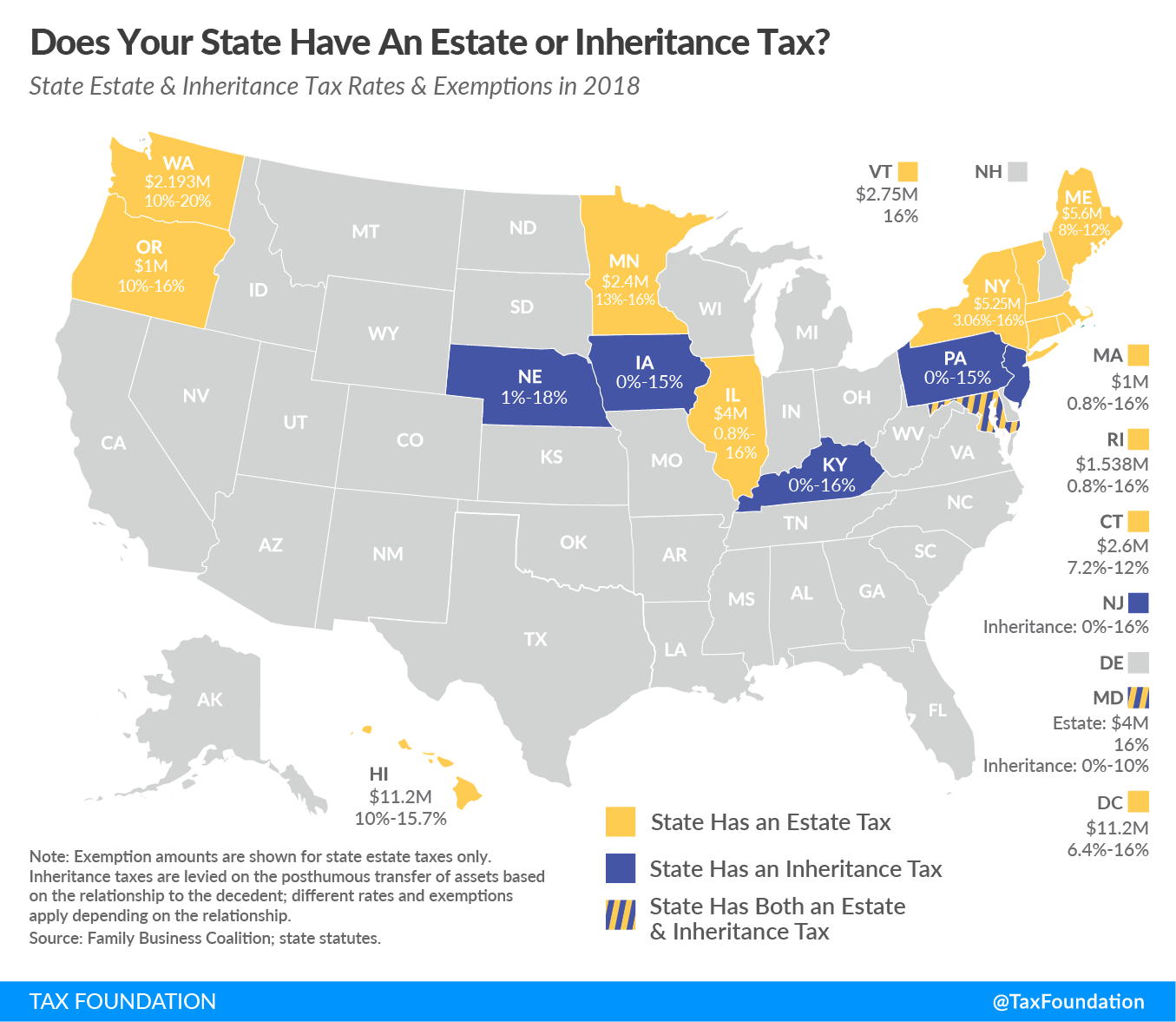In addition to the federal estate tax of 40 percent, some states impose an additional estate or inheritance tax. Twelve states and the District of Columbia impose an estate tax while six states have an inheritance taxAn inheritance tax is levied upon the value of inherited assets received by a beneficiary after a decedent’s death. Not to be confused with estate taxes, which are paid by the decedent’s estate based on the size of the total estate before assets are distributed, inheritance taxes are paid by the recipient or heir based on the value of the bequest received. . Maryland is the only state in the country to impose both.
Washington state’s 20 percent rate is the highest estate taxAn estate tax is imposed on the net value of an individual’s taxable estate, after any exclusions or credits, at the time of death. The tax is paid by the estate itself before assets are distributed to heirs. rate in the nation; eight states and DC are next with a top rate of 16 percent. Two states match the federal exemption level of $11.2 million.
Of the six states with inheritance taxes, Nebraska has the highest top rate at 18 percent. Maryland imposes the lowest top rate at 10 percent. All six states exempt spouses, and some fully or partially exempt immediate relatives.
Recently, states have moved away from these taxes or raised the exemption levels:
- Indiana repealed its inheritance taxA tax is a mandatory payment or charge collected by local, state, and national governments from individuals or businesses to cover the costs of general government services, goods, and activities. in 2013
- Tennessee repealed its estate tax in 2016
- New York raised its exemption level to $5.25 million this year and will match the federal exemption level by 2019
- The District of Columbia is set to conform to the federal level this year after meeting its revenue triggers
- New Jersey will fully phase out its estate tax by 2018
- Delaware repealed its estate tax this year
In the Tax Cuts and Jobs Act, the federal government raised the estate tax exclusion from $5.49 million to $11.2 million per person, though this provision expires December 31, 2025.
Estate and inheritance taxes are burdensome and disincentivize business investment. The handful of states that still impose them should consider eliminating them, or at least conforming to federal exemption levels.
Share this article